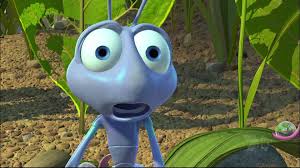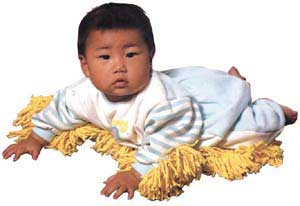ヘインです。よんじゅはっさいです。
じゃまた!

woot!

 ^__^
^__^ 
やまださん、
おげんきですか。ヘインです。メリーランドからきましたが、ニユーヨークにすんでいます。コロンビアだいがくのいちねんせいです。
コロンビアは小さいですが、とてもきれいです。そして、あまりしずかじゃありません、ニユーヨークはとてもにぎやかですから。
わたしのせんおうはれきしといがくです。そして、わたしのべんきょうはむずかしですが、おもしろいです。コロンビアでわたしのせいかつはいそがしですが、たのしいです。びじゅうつかんとレストランとえいがへいきますがすきです。
にほんおせいかつはどうですか。にほんへしち月ついたちにいきます。わくわくしています。
よろしくおねがいします。

In class, we learned the main occasions in which to use katakana:
a) loan words/foreign names,
b) onomatopoeic expressions, and
c) to add emphasis (though I think sometimes it is hard to distinguish between the two).
Exhibit A: ローシヨンプル(lotion pool, featured in a Japanese game show)
B and C: ピカチュ!
check out all the onomatopoeia.
ピカピカ "Pika Pika" in Japanese means emitting light or brightness, which I found in a japanese adaptation of アカハナのトナカ (Rudolph the red-nosed reindeer). It is said to be onomatopoeic, but it makes more sense to say it's emphatic?
チュ "chu" is the onomatopoeic expression for the squeaking of a mouse.
My question is why is Reindeer in Katakana if there is a Japanese word for it?
So I searched and multiple online descriptions of Katakana says that it can also be used for:
--> new Japanese words such as カラオケ
--> Scientific words such as ガン (cancer)
--> Fruit and animals, even though they have Kanji, but the kanji is said to be difficult and therefore replaced
--> Manga and anime when someone/something foreign (non-human) is speaking (i.e. alien/robot)
--> in advertisement, to be hip
IN CONCLUSION: I think the textbook sticks to the basics rather than enumerate everything because katakana usage has expanded due to culture/convenience, etc. Possibly too expansive to enumerate everything?
わたしはくじにべんきょうします。が,いまブログのupdateをしま!
For Thanksgiving, らいげつ、バスでうちへかえります。きょう、バスのきっぷんをかいました。ニユーヨークからうちまでにじゅうドラです。
Sidenote, I just realized we haveにほんごのテスト the げつようび after break. =(
Oh well, at least I'll have something to do during the ごじかん バスride back to ニユーヨーク.
------------->
On the subject of home, きょねん、わたしはともだちとともだちのおかあさんとにほんごのplay をみました。
I don't remember all the details (not that I fully understood it the first time around, but luckily, the web is my savior).
We saw Yukio Ninagawa's Shintoku-Maru featuring Tatsuya Fujiwara (who I suppose is well known). I'm culturally illiterate so the name doesn't mean much to me ...まだ, and I couldn't make out a single word of the whole play (they do a brief summary in English at the beginning), but it was soo cool to watch! The special effects, costumes, set, etc, were great. It had the Spirited Away vibe, except much darker. It's about a young man's attraction to his stepmother .. dark. I bring it up because I wonder how many years of Japanese I'd have to take to understand even a bit of it. I imagine it'd be a loong time. Suppose I'll start by deciphering what the title means. じゃまた。



こんばんは!




